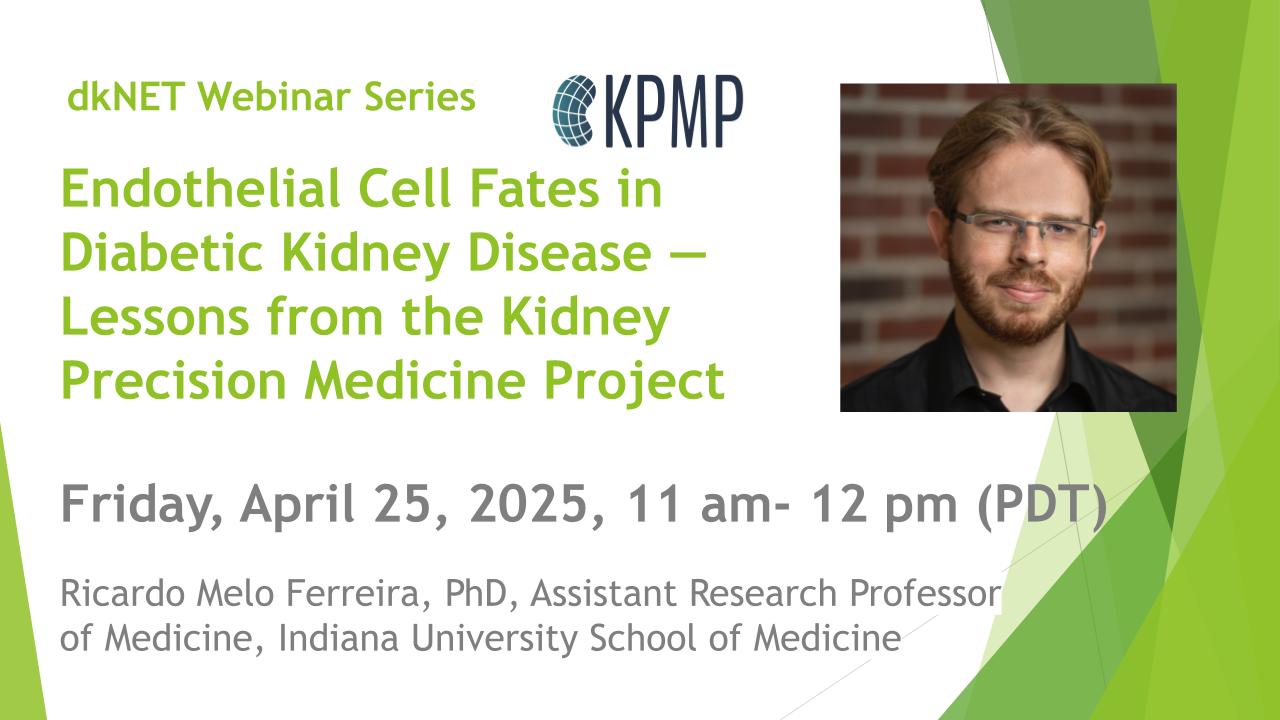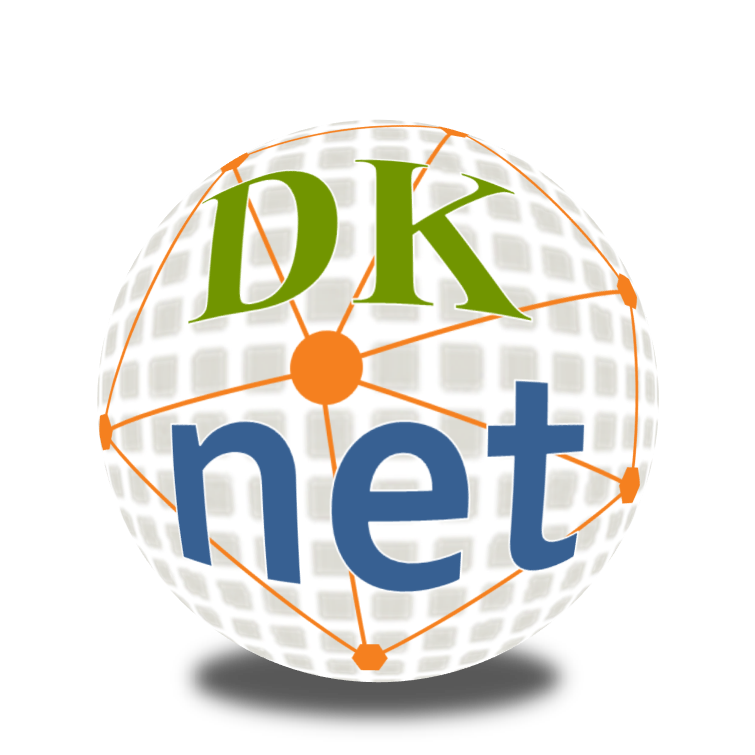Leaving Community
Are you sure you want to leave this community? Leaving the community will revoke any permissions you have been granted in this community.
dkNET community events and announcements in November, 2023
Dear dkNET Community,
dkNET provides updates on activities of interest to the NIDDK-supported community. You could keep up to date on these activities through our Twitter feed @dkNET_info, through our Community Calendar, or through dkNET e-mail list. If you have an event or funding opportunities you'd like to advertise, please contact us info_at_dknet.org.
dkNET News
Upcoming webinars: (1) A Single Cell Atlas of Human and Mouse White Adipose Tissue, presented by Dr. Margo Emont, Beth Israel Deaconess Medical Center/Harvard Medical School on Friday, November 17, 2023, from 11 am - 12 pm PT. (2) An Encyclopedia of The Adipose Tissue Secretome to Identify Mediators of Health and Disease, presented by Dr. Paul Cohen, Rockefeller University on Friday, December 1, 2023, from 11 am - 12 pm PT.
Recording and Slides are Available: (1) dkNET Office Hours for Data Management and Sharing Mandate on Sep. 22, 2023: Recording; Slides (2) The National Sleep Research Resource (NSRR) - Opportunities for Large-Scale Sleep and Circadian Data to Promote Understanding of Metabolic Diseases, presented by Dr. Susan Redline, Harvard T.H. Chan School of Public Health on October 27, 2023: Recording: Slides.
- dkNET Pilot Program: Meet the dkNET New Investigator Pilot Program Awardees (funding cycle 2022-2024)! Discover their innovative bioinformatics projects on our YouTube channel!
- New Resources Added to dkNET
- Playbook Workflow Builder (RRID:SCR_024540) is a web-based platform that facilitates knowledge resolution by enabling users to traverse the growing network of input datasets, semantically annotated API endpoints, and data visualization tools contributed by the ecosystem. It is via a user-friendly web-based user interface, workflows can be constructed from these building blocks without technical expertise.
- BioThings API (RRID:SCR_024539) is a FAIR API ecosystem for inter-connected biomedical knowledge. It provides three components in its API development ecosystem: the family of high-performance APIs for accessing up-to-date annotations for genes, genetic variants, chemicals, and drugs. It provides BioThings API packages its API-development best practice into a reusable Software Development Kit to help other bioinformaticians build the same high-quality API to distribute their own specific knowledge. BioThings API provides a platform to foster findability and interoperability across community-developed biomedical APIs. It provides tools for authoring API metadata following community-supported OpenAPI standards and hosts standardized interactive API documentation. It defines a set of OpenAPI extensions to provide biomedical-specific semantic annotations.
- miRNet (RRID:SCR_024567) is a web-based tool that offers statistical, visual, and network-based approaches to understanding miRNAs functions and regulatory mechanisms. It is used for dissecting miRNA-target interactions and functional associations through network-based visual analysis. miRNet 2.0 is network-based visual analytics for miRNA functional analysis and systems biology.
- CARGO (RRID:SCR_024474) is a web browser for the analysis of proteomic data. ShinyApp interface generated in R and RStudio.
- Biocode Commons (RRID:SCR_024553) is a platform that provides resources for genomic observations from collection to analysis and publication. Works with the standards community to ensure clear vocabularies and useful ontologies for biological resources and related assets. Biocode Commons is also collaborating on the development of Biological Collections Ontology, working to better integrate ontologies, vocabularies, and relevant standards that are related to BCO.
- Luna (RRID:SCR_024541) is a software package for the analysis of sleep signal data. It contains open-source C/C++ software for manipulating and analyzing polysomnographic recordings, with a focus on sleep EEG.
- Moonlight (RRID:SCR_024542) is a Luna-based interactive viewer for EDF signal and annotations, specifically designed for polysomnographic data. It supports visualization, analyses, and manipulation of sleep signals, a range of summary statistics, and hypnogram-based analyses including automated staging.
Events in November 2023
Nov. 02-05, 2023
Kidney Week 2023 ASN Annual Meeting
Location: Philadelphia, PA, USA
More information: https://www.asn-online.org/educatio n/kidneyweek/
Nov. 11-15, 2023
Neuroscience 2023
Neuroscience 2023 will be held at the Walter E. Washington Convention Center in Washington, D.C., November 11-15, 2023.
Each year, scientists from around the world congregate to discover new ideas, share their research, and experience the best the field has to offer. Attend so you can: present research, network with scientists, attend session and events, and browse the exhibit hall.
Join the nearly half a million neuroscientists from around the world who have propelled their careers by presenting an abstract at an SfN annual meeting — the premier global neuroscience event.
Location: Washington, DC, USA
More information: https://www.sfn.org/meetings/neuroscience-2023
Nov.14, 2023
Open Office Hour Discussing MoTrPAC Data
Attention all researchers, academics, and data enthusiasts! Are you eager to delve into the Molecular Transducers of Physical Activity (MoTrPAC) research data, featuring a detailed map of the molecular changes that occur in response to exercise? Then mark your calendars for our upcoming Open Office Hour! This Q&A session is designed to be an interactive session to explore the MoTrPAC study data and exchange valuable insights. Whether you're already familiar with our data or just getting started, this event is an excellent opportunity to get your questions answered and learn about navigating through our complex data sets. Our panel of experts will be present to facilitate the conversation and address your specific challenges. This event is open to everyone with an interest in our unique multi-omic, multi-tissue data describing the molecular changes that occur with physical activity, with the goal of generating insights towards improving and preserving health at the molecular level.Nov. 15, 2023
ScHARe Think-a-Thon webinar series: Preparing for AI-Driven Research 2: An Introduction to FAIR Data and AI-Ready Datasets
The NIDDK Central Repository will be collaborating with the Science Collaborative for Health disparities and Artificial intelligence bias REduction (ScHARe) to host a webinar/think-a-thon on November 15, 2023, at 2PM (EST). The webinar will walk participants through the data challenge datasets and show them how to prepare datasets for AI analyses and how to address bias in datasets to drive meaningful insights. Registration for this webinar will be open until the day of the event. We are encouraging data challenge participants to register for the webinar.Nov. 16, 2023
Vivli Meeting: Shaping the next 10 years in data sharing
Location: Washington, DC, USA
More information:
https://vivli.org/event-shaping-the-next-10-years-in-data-sharing-b uilding-on-the-gains-made-and-looking-ahead-to-the-next-10-years-in-advanci ng-human-health/
Nov. 17, 2023
dkNET Webinar: Generation Of A Cellular Atlas Of Adipose Tissue In Mouse And Man
Join dkNET Webinar on Friday, November 17, 2023, 11 am - 12 pm PT
Abstract: White adipose tissue, once regarded as morphologically and functionally bland, is now recognized to be dynamic, plastic and heterogenous, and is involved in a wide array of biological processes including energy homeostasis, glucose and lipid handling, blood pressure control and host defense. High-fat feeding and other metabolic stressors cause marked changes in adipose morphology, physiology and cellular composition, and alterations in adiposity are associated with insulin resistance, dyslipidemia and type 2 diabetes. Here we provide detailed cellular atlases of human and mouse subcutaneous and visceral white fat at single-cell resolution across a range of body weight. We identify subpopulations of adipocytes, adipose stem and progenitor cells, vascular and immune cells and demonstrate commonalities and differences across species and dietary conditions. We link specific cell types to increased risk of metabolic disease and provide an initial blueprint for a comprehensive set of interactions between individual cell types in the adipose niche in leanness and obesity. These data comprise an extensive resource for the exploration of genes, traits and cell types in the function of white adipose tissue across species, depots and nutritional conditions. The top 3 key questions that this resource can answer:1. How specific is my gene of interest to a particular cell type in adipose tissue? 2. Is the gene/pathway that I am studying in mouse adipose tissue also present in human adipose tissue (and is it regulated similarly in low vs high body weight)?3. What are the changes in gene expression in a specific cell type at low vs high body weight?
Presenter: Margo Emont, PhD. Instructor, Beth Israel Deaconess Medical Center
Dial-in Information: https://uchealth.zoom.us/meeting/register/tZIvduGvpjstGdQhMFKNAbQVPgSCa-q7SY2n
Nov. 28-29, 2023
NIDDK Workshop: Pharmacotherapy for Obesity in Children and Adolesc ents: State of the Science, Research Gaps and Opportunities
Location: Bethesda, MD, USA
More information: https://www.niddk.nih.gov/news/meetings-workshops/2023/pharmac otherapy-for-obesity-in-children-and-adolescents
Nov. 29-Dec. 01, 2023
Annual Cairibu Meeting: Collaborating for the Advancement of Interd isciplinary Research in Benign Urology
The purpose of the annual CAIRIBU meeting is to bring together the Directors and research teams of the NIDDK U54 Urology O’Brien Centers, the FORWARD P20 Centers for Interdisciplinary Research in Benign Urology, and the Multidisciplinary K12 Urologic Research (KURe) and Urological Epidemiology (KEpi) Institutional Research Career Development Programs.
Location: Kansas City, MO, USA
More information: https://www.niddk.nih.gov/news/meetings-workshops/2023/annual-cairibu-meeting
Nov. 30, 2023 [Extended deadline]
Registration deadline: NIDDK's Data-Centric Challenge
More information: https://dknet.org/about/dknetnews/2667
Funding Opportunities Information and Deadlines in November 2023
Nov. 06, 2023
NIH Funding Opportunity Letter of Intent Due: Human Islet Research Network - Consortium on Modeling Autoimmune Diabetes (HIRN-CMAD) (UG3/UH3 C linical Trial Not Allowed)
More information: https://dknet.org/about/dknetnews/2673
Nov. 15, 2023
NIDDK Funding Opportunity Application Due: A Consortium for Gut-Bra in Communication in Parkinson’s Disease (U24 Clinical Trial not allowed)
More information: https://grants.nih.gov/gr ants/guide/rfa-files/rfa-dk-23-001.html
Nov. 15, 2023
NIDDK Funding Opportunity Application Due: A Consortium for Gut-Bra in Communication in Parkinson’s Disease (U01 Clinical Trial Not Allowed)
More information: https://grants.nih.gov/grants/guide/rfa-fi les/rfa-dk-22-036.html





